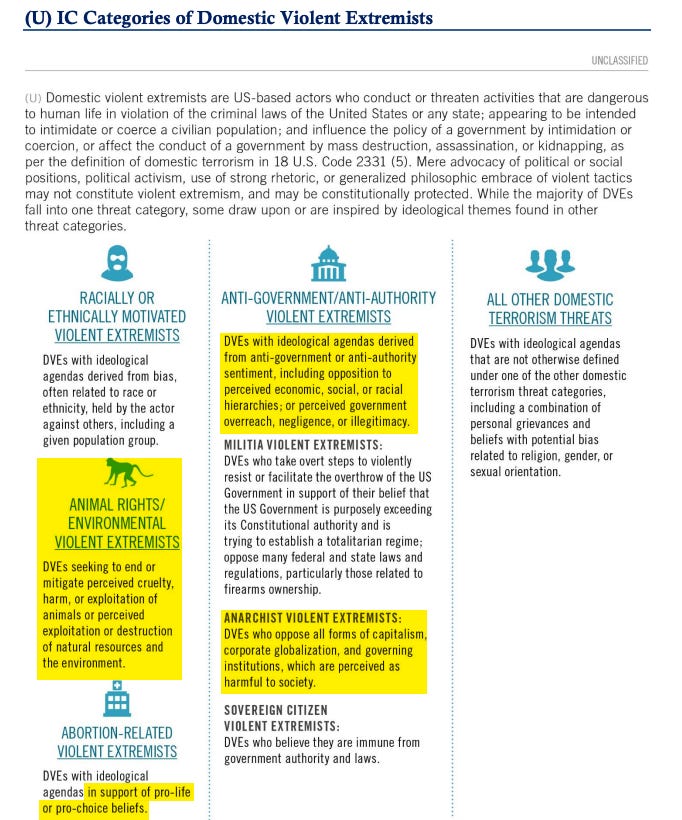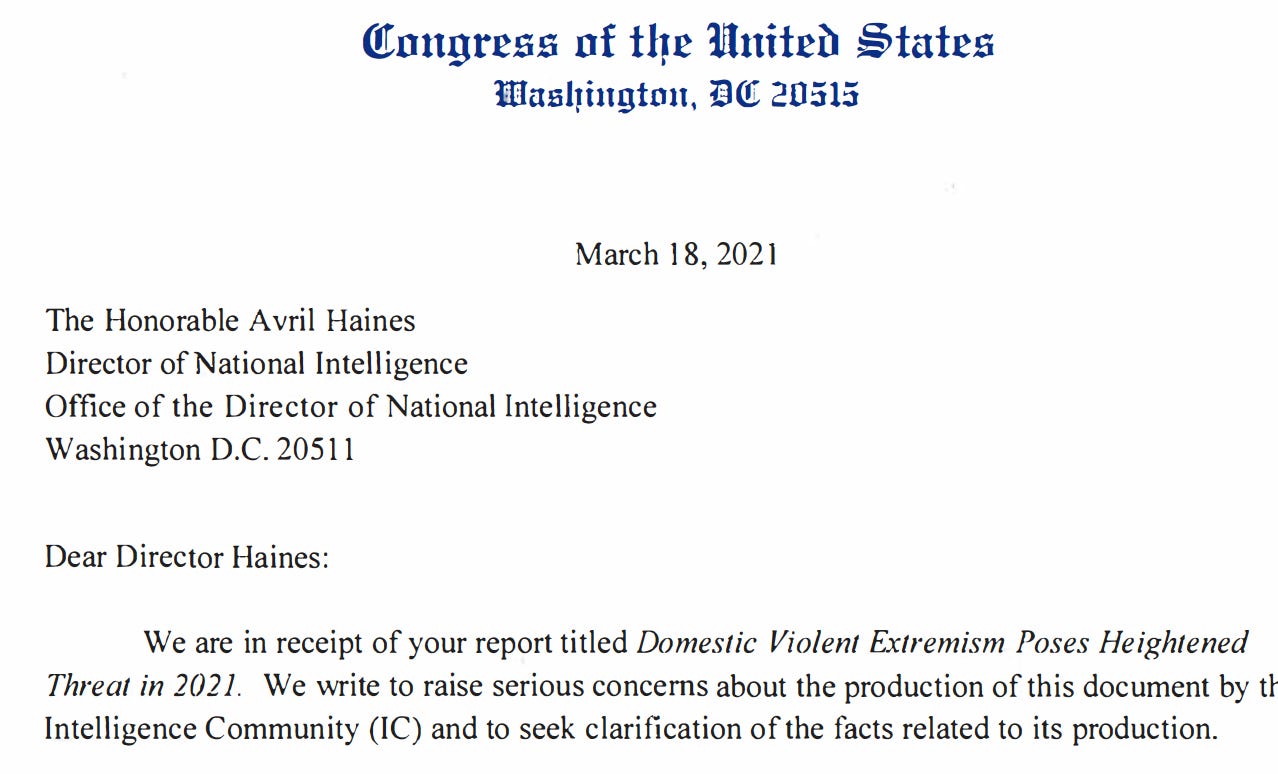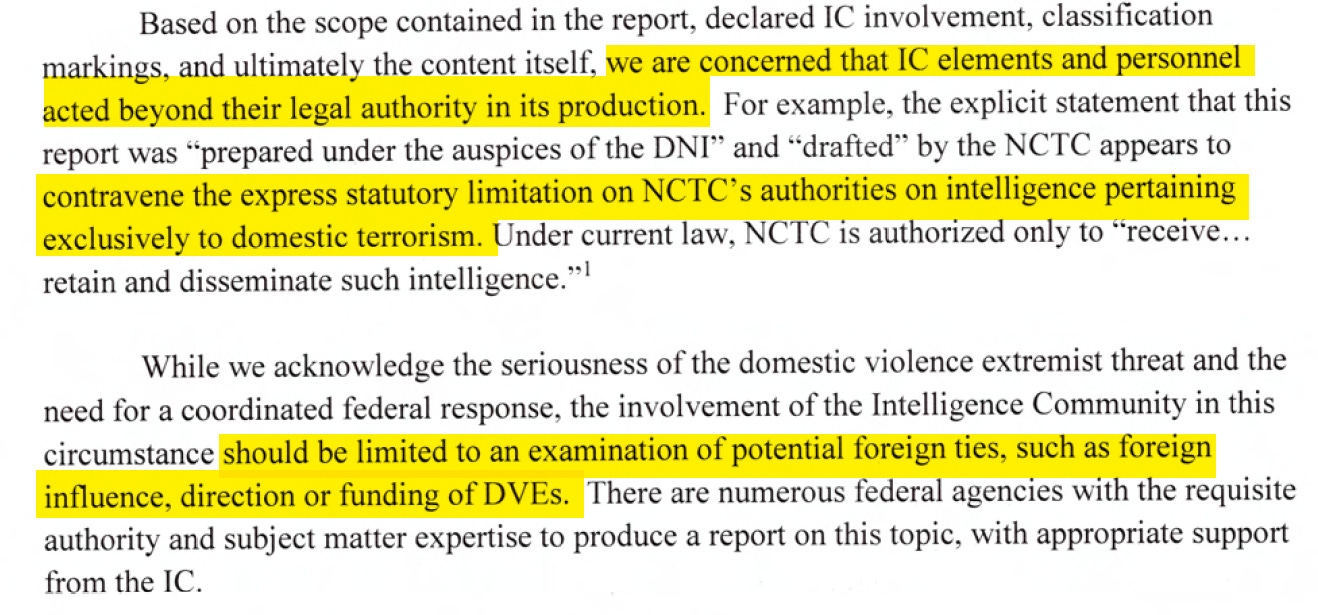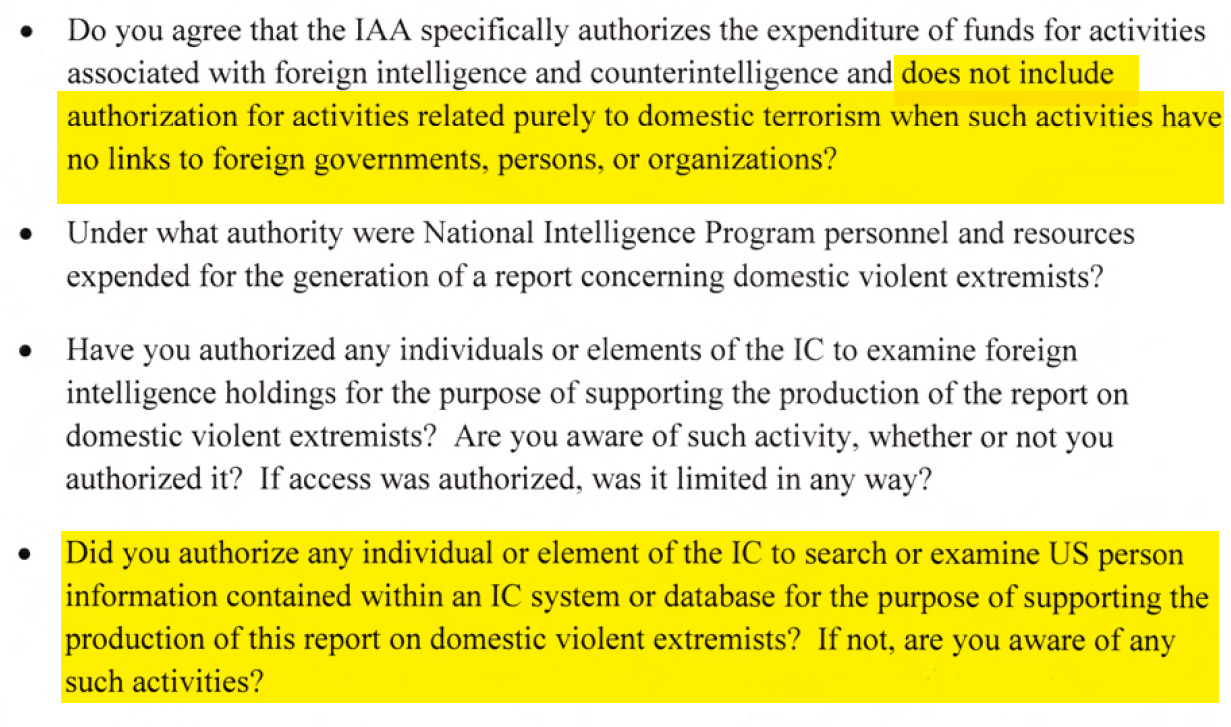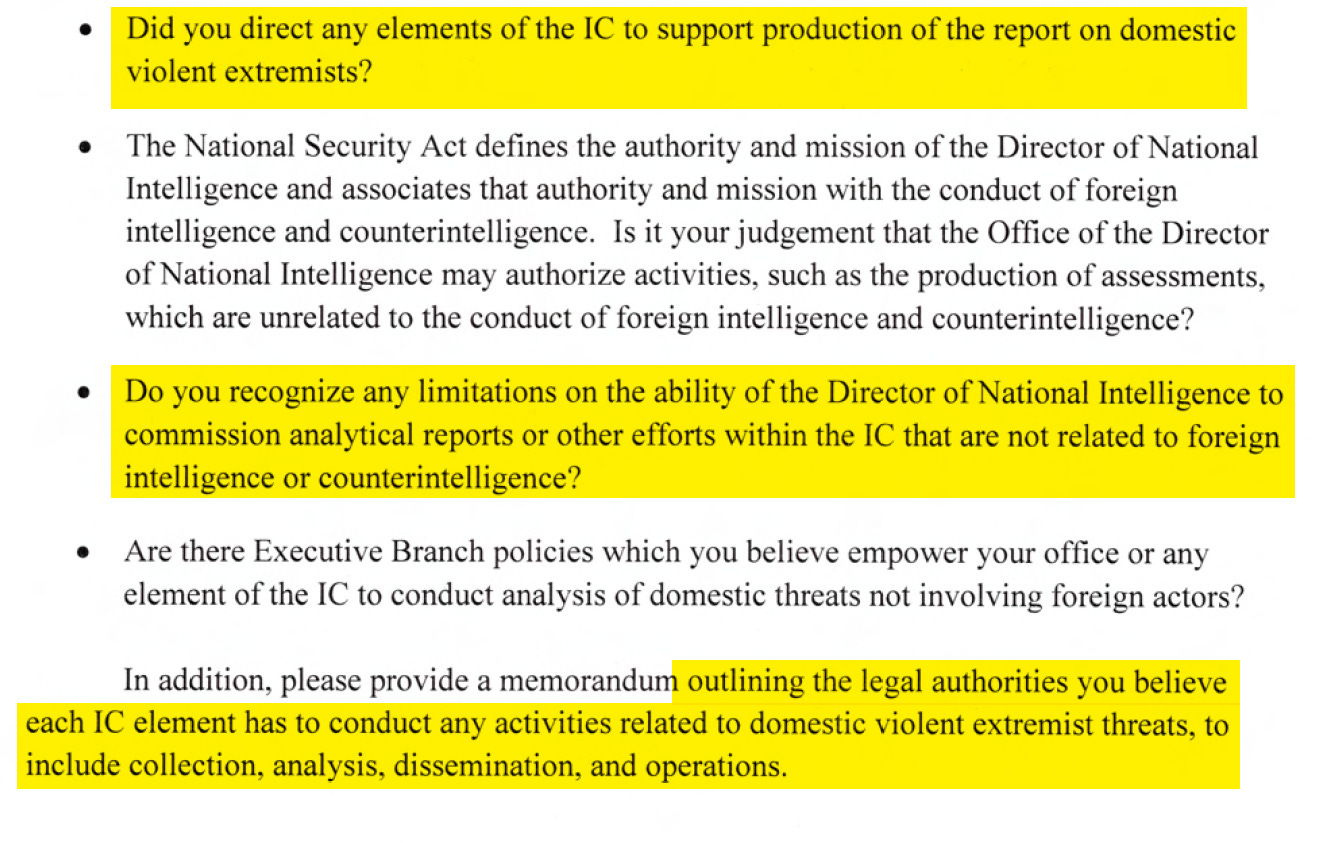
Ed Note: The T-Room does not normally post stories behind paywalls or subscriptions out of respect for those news outlets or journalists who are striving to earn a living. However, Substack, a favorite of many independent journalists of whom we’ve been publishing their work for years is a different animal. Journalists who are striking out on their own building their own paying readership provides these writers with editorial freedom found no where else in the news business. Thus, to strike a balance, we will post enough of a story and then link you over to their subscription site leaving it up to you to sign up to receive their articles and/or then subscribing to read their work, regularly.
by Glenn Greenwald at Glenn Greenwald Substack
A report declassified last Wednesday by the Department of Homeland Security is raising serious concerns about the possibly illegal involvement by the intelligence community in U.S. domestic political affairs.
Entitled “Domestic Violent Extremism Poses Heightened Threat in 2021,” the March 1 Report from the Director of National Intelligence states that it was prepared “in consultation with the Attorney General and Secretary of Homeland Security—and was drafted by the National Counterterrorism Center (NCTC), Federal Bureau of Investigation (FBI), and Department of Homeland Security (DHS), with contributions from the Central Intelligence Agency (CIA) and the Defense Intelligence Agency (DIA).”
Its primary point is this: “The IC [intelligence community] assesses that domestic violent extremists (DVEs) who are motivated by a range of ideologies and galvanized by recent political and societal events in the United States pose an elevated threat to the Homeland in 2021.” While asserting that “the most lethal” of these threats is posed by “racially or ethnically motivated violent extremists (RMVEs) and militia violent extremists (MVEs),” it makes clear that its target encompasses a wide range of groups from the left (Antifa, animal rights and environmental activists, pro-choice extremists and anarchists: “those who oppose capitalism and all forms of globalization”) to the right (sovereign citizen movements, anti-abortion activists and those deemed motivated by racial or ethnic hatreds).
The U.S. security state apparatus regards the agenda of “domestic violent extremists” as “derived from anti-government or anti-authority sentiment,” which includes “opposition to perceived economic, racial or social hierarchies.” In sum, to the Department of Homeland Security, an “extremist” is anyone who opposes the current prevailing ruling class and system for distributing power. Anyone they believe is prepared to use violence, intimidation or coercion in pursuit of these causes then becomes a “domestic violent extremist,” subject to a vast array of surveillance, monitoring and other forms of legal restrictions:
It goes without saying that violence of any kind — including that which is politically motivated — is a serious crime under U.S. law, and it is the proper role of the U.S. Government to investigate and prevent it. But there are real and important legal and institutional limits on the authority of the intelligence community to involve itself in domestic law enforcement, or other forms of domestic political activity, that seem threatened here, if not outright violated.
In particular, the Report’s acknowledgement that it was compiled by institutions including “the Department of Homeland Security (DHS), with contributions from the Central Intelligence Agency (CIA) and the Defense Intelligence Agency (DIA)” has alarmed numerous members of the House Intelligence Committee. On Thursday, all ten minority members of that Committee wrote a previously unreported letter to Director of National Intelligence Avril Haines “to raise serious concerns about the production of this document by the Intelligence Community (IC) and to seek clarification of the facts related to its production.”
Among the issues raised was that the DHS Report was not subject to the standard rigors of an intelligence community finding, yet continually makes sweeping claims that it prefixes with the authoritative phrase “the IC assesses.” The Committee members found this “to be misleading,” adding: we “urge you to clarify which elements in the IC concurred with this judgement and the intelligence basis, if any, for that concurrence.” In other words, Haines claims that these dubious assertions about various threats faced by Americans are the findings of the intelligence community when that is not true: just like the originally false claim widely spread by the media that “all seventeen intelligence agencies” endorsed the 2016 election findings about Russian interference when, in fact, it was only a few which had done so. Haines’ claims have support only from a few agencies as well.
But the more substantive danger is the role played by the CIA and other intelligence agencies in the domestic politics of the U.S., all in the name of fighting “domestic terrorism” (similar dangers were previously created by the Bush and Obama administrations in the name of fighting “international terrorism”). As the committee members’ letter details:
The Intelligence Committee members, citing the fact that the intelligence community is “subject to longstanding prohibitions against domestic activities,” then demanded answers to a series of questions based on this substantive concern:
Involvement of the intelligence community in the domestic activities of U.S. citizens is one of the most dangerous breaches of civil liberties and democratic order the U.S. Government can perpetrate. It was after World War II when the CIA, the NSA and other security state agencies that wield immense and unlimited powers in the dark were created in the name of fighting the Cold War. Legal and institutional prohibitions on wielding that massive machinery against the American public were central to the always-dubious claim that this security behemoth that operates completely in the dark was compatible with democracy. As the ACLU noted, “in its 1947 charter, the CIA was prohibited from spying against Americans, in part because President Truman was afraid that the agency would engage in political abuse.”
Since then, Truman’s fear has been realized over and over. Some of the worst…
Continue Reading
